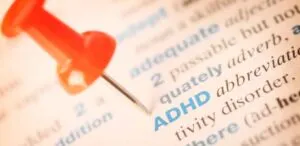Depression is a serious psychological health condition that affects millions of people around the world. It is characterized by persistent feelings of sadness, hopelessness, and a lack of interest in once-enjoyable activities. Depression can interfere with daily activities, relationships, and overall quality of life. Diet and Depression can also lead to physical symptoms such as fatigue, changes in appetite, and sleep disturbances.

The Link Between Diet and Depression
There is mounting evidence that suggests that there is a strong link between diet and depression. People who eat a diet high in processed foods and added sugars are more likely to experience symptoms of depression, while those who consume a diet rich in whole foods, such as fruits, vegetables, and whole grains, are less likely to experience symptoms of depression.
One possible explanation for this link is the role in diet and depression that diet plays in inflammation. Inflammation is a normal response that occurs in the body in response to injury or infection. However, when inflammation becomes chronic, it can contribute to a range of health problems, including depression.
Certain foods, such as processed foods, high-fat products, and refined flour have been shown to increase inflammation in the body, while others, such as fruits and vegetables, whole grains, olive oil, and fish have anti-inflammatory properties. Therefore, consuming a diet that is high in anti-inflammatory foods and low in pro-inflammatory foods may help reduce inflammation in the body and reduce the risk of depression.
Why Risk of Depression Increasing in People?
Research has shown that a pro-inflammatory diet was connected with a significantly increased risk of depression in women; middle-aged adults; and people with obesity.
Another possible explanation for the link between diet and depression is the dietary intake of certain micronutrients. Deficiencies in vitamins B, D, and E, as well as zinc, magnesium, and folic acid, have been connected with an increased risk of depression. Ensuring adequate intake of these nutrients through a balanced diet or supplementation may help support psychological health and reduce the risk of depression.
Another possible explanation for the connection between diet and depression is the role that gut health plays in psychological health. The gut microbiome, which is the collection of microorganisms that live in the digestive tract, helps regulate the immune system.
One way to support a healthy gut microbiome is by consuming a diet that is high in fiber. Foods that are high in fiber, such as fruits, vegetables, whole grains, and legumes, can help feed the good bacteria in the gut and promote the growth of a healthy microbiome. Similarly, foods that contain probiotics, such as yogurt, can help introduce beneficial bacteria into the gut.
Lifestyle factors such as unhealthy eating, inactive lifestyle, smoking, and substance use also contribute to an increased risk of depression. However, physical exercise, smoking cessation, and dietary recommendations are effective as a treatment for depression.

The Role of Specific Nutrients
While consuming a healthy diet overall is important for managing depression, there are certain nutrients that may be particularly beneficial. These include:
- Fruits and vegetables: Fruits and vegetables are important components of a healthy diet. They are rich in vitamins, minerals, and antioxidants that support brain health and help reduce inflammation in the body, which can contribute to the development of depression.
- Omega-3 Fatty Acids: Omega-3 fatty acids are a type of healthy fat that are found in fatty fish, such as salmon, as well as in nuts and seeds. Research has shown that consuming omega-3 fatty acids may help reduce symptoms of depression.
- B Vitamins: B vitamins, such as vitamin B6, vitamin B12, and folate, play a critical role in maintaining brain function and mood regulation. Consuming a diet that is rich in B vitamins may help reduce the risk of depression.
- Magnesium: Magnesium is an essential mineral. Research has shown that low levels of magnesium may be associated with an increased risk of depression.
- Zinc: Zinc is also an essential mineral that plays a critical role in immune function. Low zinc levels can be linked to an increased risk of depression.
- Vitamin D: Recent research has found that supplementation with Vitamin D was beneficial in addressing symptoms in people with depressive disorder.

Foods to Avoid
While many foods can be beneficial for managing depression, certain foods should be avoided. These include:
- Processed Foods: Processed foods, including fast food, snack foods, and frozen meals, are often high in added sugars, unhealthy fats, and sodium. Consuming these foods regularly leads to an increased risk of depression.
- Sugary Foods and Beverages: Sugary foods and beverages, such as soda, candy, and baked goods, can cause blood sugar levels to spike and then drop, which can lead to mood swings and feelings of irritability and fatigue.
- Alcohol: While it may temporarily ease certain depressive symptoms, alcohol has the potential to worsen the condition over time. Regular alcohol use can disrupt sleeping patterns and change brain chemistry, which might lead to depressive symptoms.
- Caffeine: Although it might give you a quick energy boost, too much coffee can make you feel nervous and restless, which can make your depression symptoms worsen.
Tips for Incorporating a Depression-Fighting Diet

If you are interested in incorporating a diet and depression into your life, here are a few tips to get you started:
- Focus on whole, nutrient-dense foods such as fruits, vegetables, whole grains, nuts, seeds, chicken, and fish.
- Reduce your intake of processed foods because they are often high in added sugars, unhealthy fats, and sodium.
- Incorporate anti-inflammatory foods such as omega-3 fatty acids, such as salmon and walnuts.
- Focus on gut health and incorporate foods that are high in fiber
- Be mindful of your alcohol and caffeine intake.
In conclusion, while there is no one-size-fits-all approach to managing depression, incorporating a healthy, nutrient-dense diet into your life may be an effective way to support mental health. If you need any assistance regarding diet and depression you can contact the professional psychiatrist Dr. Sohail Nibras. By focusing on your diet, you may be able to reduce inflammation in the body, support a healthy gut microbiome, and reduce your risk of depression.
Novus Beginning Psychiatry: Your Path to Health and Wellness Starts Here!
We understand that navigating the complexities of mental health can feel overwhelming, but you don’t have to face it alone. At Novus Beginning Psychiatry, we’re here to support you every step of the way. Whether you’re seeking therapy, medication, or a combination of both, our compassionate professionals are dedicated to helping you find the path to a happier, healthier life.
Our highly skilled psychiatrists are experienced in a wide range of mental health conditions, including anxiety, depression, bipolar disorder, OCD, PTSD, ADHD, autism, different types of trauma, and more. We offer evidence-based therapies that have been proven effective in helping individuals overcome their challenges. From cognitive-behavioral therapy (CBT) to couples/family therapy, we utilize the most up-to-date techniques to empower you on your healing journey.
We also recognize that medication is vital in managing certain psychological health conditions. Our team includes Dr. Nibras, who is a board-certified psychiatrist well-versed in medication management. He works closely with you to develop a comprehensive treatment plan, as we believe in the power of personalized care.
So, take the first step towards a brighter future. Contact us today to schedule an appointment. Our friendly staff is ready to assist you in finding a convenient time to meet with our dedicated professionals. Call (832)856-4718 and let us help you take charge of your mental well-being.
Medication Management For Psychiatric Wellness
At Novus Beginning Psychiatry, we’re dedicated to helping you unlock the power of effective medication management. Our team of psychiatrists has years of experience and understands the importance of finding the right balance for your mental health journey. We offer personalized and compassionate care, creating medication plans that are tailored to your unique needs. Our understanding of psychopharmacology allows us to provide the most advanced and evidence-based treatments available.
Our goal is to help you by providing the right medications to enhance your therapy outcomes, reduce your symptoms, and improve your overall well-being. We want to be your trusted partner on the path to a brighter future. Please don’t hesitate to contact us at Novus Beginning Psychiatry to experience the transformative effects of our comprehensive medication management approach.
Who is Dr. Nibras?
Dr. Sohail Nibras is a double board-certified psychiatrist in child, adolescent, and adult psychiatry. He completed his education at Saint Louis University and the American University of Integrative Science. He excels in treatments based on psychiatric care and therapeutic sessions and has experience treating dual psychiatric and substance use disorders. He is an assistant professor at the Menninger Department of Psychiatry and Behavioral Sciences at Baylor College of Medicine in Houston, Texas. He serves as an attending psychiatrist at Texas Children’s Hospital. He trains future psychiatrists and engages in scholarly research projects.
Visit us
Come and visit us at one of our locations in-person or meet us via telepsychiatry/online!
We’re here to help in Texas, ready to meet you in person. If you’re unable to make it in person, don’t worry, we’re also available online, so you can meet us easily from the comfort of your own home. Whether you prefer to see us face-to-face or connect with us online, we’re here to assist you every step of the way.
Address in Sugar Land
120 Eldridge Rd Suite D, Sugar Land, TX 77478
Address in Katy
23410 Grand Reserve Drive, Ste. 401 & 402 Katy, Texas 77494



